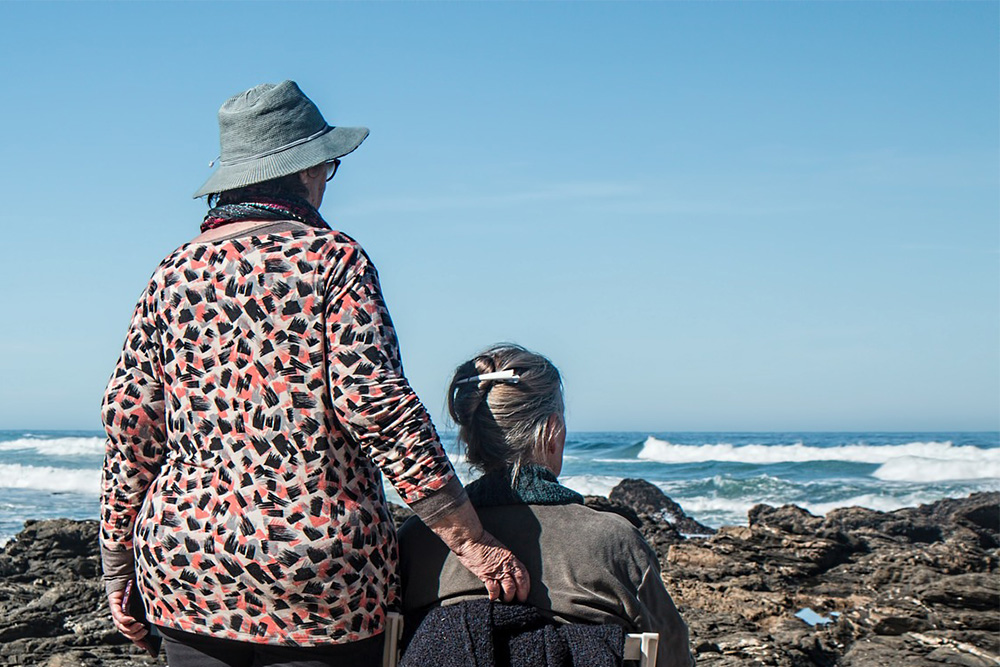August 28, 2018. In this one-hour webinar, which is part of the Hot Topics series, Kirsten Aird, MPH, shares the public health approach to engaging older populations and community partners in addressing health issues.
Learning Objectives
- Review demographic and health trends underpinning the need for public health agencies to engage more with older populations.
- Review the Trust for America’s Health’s Public Health Framework to Support the Improvement of Health and Wellbeing of Older Adults.
- Identify strategic objectives for a public health organization that would benefit from new partners in aging services.
- Align Public Health 3.0 (or Public Health Modernization) priorities with health across the lifespan initiatives.

July 24, 2018. In this one-hour webinar, which is part of the Hot Topics series, Public Health Director Dawn Emerick, EdD, shares how her division embraced the Chief Health Strategist role to better work with new partners and demonstrate their agency’s value to the community.
Learning Objectives
- Identify three necessary change management tactics for organizational restructuring.
- List two examples of successful activities for implementing a strategic plan.
- List at least two lessons or recommendations for integrating change management principles and making change stick.

June 27, 2018. In this one-hour webinar, which is part of the Hot Topics series, Maria Levis, CEO of Impactivo, reviews how her team deployed creative communication strategies to address public health issues in the wake of Hurricane Maria.
Learning Objectives
- List three major public health challenges in Puerto Rico after Hurricane Maria.
- Identify two communication strategies for messaging to hard-to-reach communities in a hurricane disaster response.
- Consider ways to build durable communication systems that can withstand severe power outages.

May 29, 2018. In this one-hour webinar, which is part of the Hot Topics series, Alexis Bates reviews why maternal deaths in the United States have risen since the 1980s, and what is being done both locally and nationally to address the issue.
Learning Objectives
- Understand the impetus behind Washington State’s recent maternal mortality law and how the Washington State Department of Health is involved in the review process.
- Describe maternal deaths in Washington State between 2014–2015.
- List two recommendations made by the maternal mortality review panel to improve women’s health care services in the state.

April 25, 2018. In this one-hour webinar, which is part of the Hot Topics series, planner and architect Erin Christensen Ishizaki explains how her work uses public health research and design as interventions to reduce chronic disease.
Learning Objectives
- List two motivating factors for real estate and planning decision-makers to intentionally consider health.
- List three ways planners and designers can use public health research methods in their work beyond a health impact assessment.
- Consider three cross-sector strategies for public health practitioners and urban planners to collectively leverage their work and influence decisions.

March 27, 2018. In this one-hour webinar, which is part of the Hot Topics series, Karolyn Holden, Director, Grays Harbor County Public Health and Social Services, shares how her rural public health agency took deliberate steps toward building a more trauma-informed practice.
Learning Objectives
- List two resources or tools that could help guide an organization in becoming more trauma-informed.
- Describe two ways Grays Harbor County Public Health and Social Services changed their workplace culture to be more trauma-informed.
- List two policy or environmental changes Grays Harbor County Public Health and Social Services put in place to be more trauma-informed.

February 20, 2018. In this one-hour webinar, which is part of the Hot Topics series, Jennifer Baker, Adolescent Health Project Coordinator for the Alaska Department of Health and Social Services, shares tested strategies for getting and keeping youth engaged in prevention efforts.
Learning Objectives
- List two ways the Alaska Adolescent Health Project encourages youth to participate in health promotion campaigns.
- Describe how local and national data can be used in support of positive youth development and inclusion in community health projects.
- Identify two resources for assessing organizational readiness to better include youth in prevention efforts.

January 30, 2018. In this one-hour webinar, which is part of the Hot Topics series, Luci Longoria, MPH, shares how Oregon public health advocates helped raise the tobacco purchasing age from 18 to 21.
Learning Objectives
- Review the public health significance of raising the minimum legal sales age of tobacco products and inhalant delivery systems to 21 years old
- Understand how policy changes support a larger tobacco control strategy
- Describe two ways public health advocates can navigate tobacco control policies in their communities using lessons from Oregon's approach

December 20, 2017. In this one-hour webinar, which is part of the Hot Topics series, Jennifer Messenger Heilbronner shares strategies for messaging health equity to decision-makers to ensure underresourced communities have access to new programs and funding created by a policy.
Learning Objectives
- Analyze values that impact decision-makers' receptiveness to policies that advance health equity and protect vulnerable populations
- Describe messages that motivate decision-makers to purposefully advance health equity through public policy
- Identify ways to avoid the reflexive default to "individual responsibility" framing for health issues

November 28, 2017. In this one-hour webinar, which is part of the Hot Topics series, Karyn Brownson, MSW, explores the latest research linking brain and social development with injury prevention.
Learning Objectives
- Understand the basics of how the brain develops from birth to age 24.
- Think about injury data through a brain development lens.
- List two ways in which understanding connections between brain development and injury can improve and inform prevention practices.

October 24, 2017. In this one-hour webinar, which is part of the Hot Topics series, Public Health Director Dawn Emerick. EdD. describes how a local health department in Oregon used change management principles to restructure in advance of the state’s modernization efforts.
Learning Objectives
- Describe public health modernization efforts in Oregon.
- List two change management theories.
- Identify three change management tactics imperative to organizational restructuring.

September 26, 2017. In this one-hour webinar, which is part of the Hot Topics series, Policy Administrator Stefan Johansson discusses using data to drive performance in Wyoming state government.
Learning Objectives
- Understand why performance management has historically been challenging for public health organizations.
- List three tips for approaching large data sets from a performance management perspective.
- List two strategies for developing meaningful priorities to drive appropriate data analysis plans.

August 22, 2017. In this one-hour webinar, which is part of the Hot Topics series, prevention specialists discuss how they are using art and media projects to address marijuana-related health disparities in creative ways.
Learning Objectives
- Understand the Washington State Department of Health’s role in marijuana prevention and harm reduction efforts.
- List two ways communication strategies can improve health equity regarding marijuana use among some youth populations.
- List two reasons why engaging key audiences and community partners in developing and implementing health communication products is important.
- List two examples where community-based organizations used culturally-relevant messages and audience engagement throughout campaign development.

July 25, 2017. In this one-hour webinar, Kristen Beiers-Jones, MN, reviews how population health nurses in Oregon are moving upstream to improve refugee health.
Learning Objectives
- Identify three reasons why health insurance lapses for refugee populations.
- List three common consequences of health insurance lapse among refugee populations.
- List two system-level solutions for preventing health insurance lapses among refugee populations.
- Consider the connections between social justice and health care access.

June 29, 2017. In the June session of Hot Topics in Practice, the Northwest Public Health Leadership Institute and the University of Washington Center of Excellence in Maternal and Child Health welcome lactation consultant Camie Goldhammer to discuss how communities of color, especially Native American communities, are reclaiming breastfeeding as an indigenous food source.
Learning Objectives
- Review how breastfeeding was historically discouraged among communities of color and the barriers that created.
- List three benefits of breastfeeding as noted in the scientific literature.
- Review how public health professionals from across many disciplines and departments can support breastfeeding through their work.
